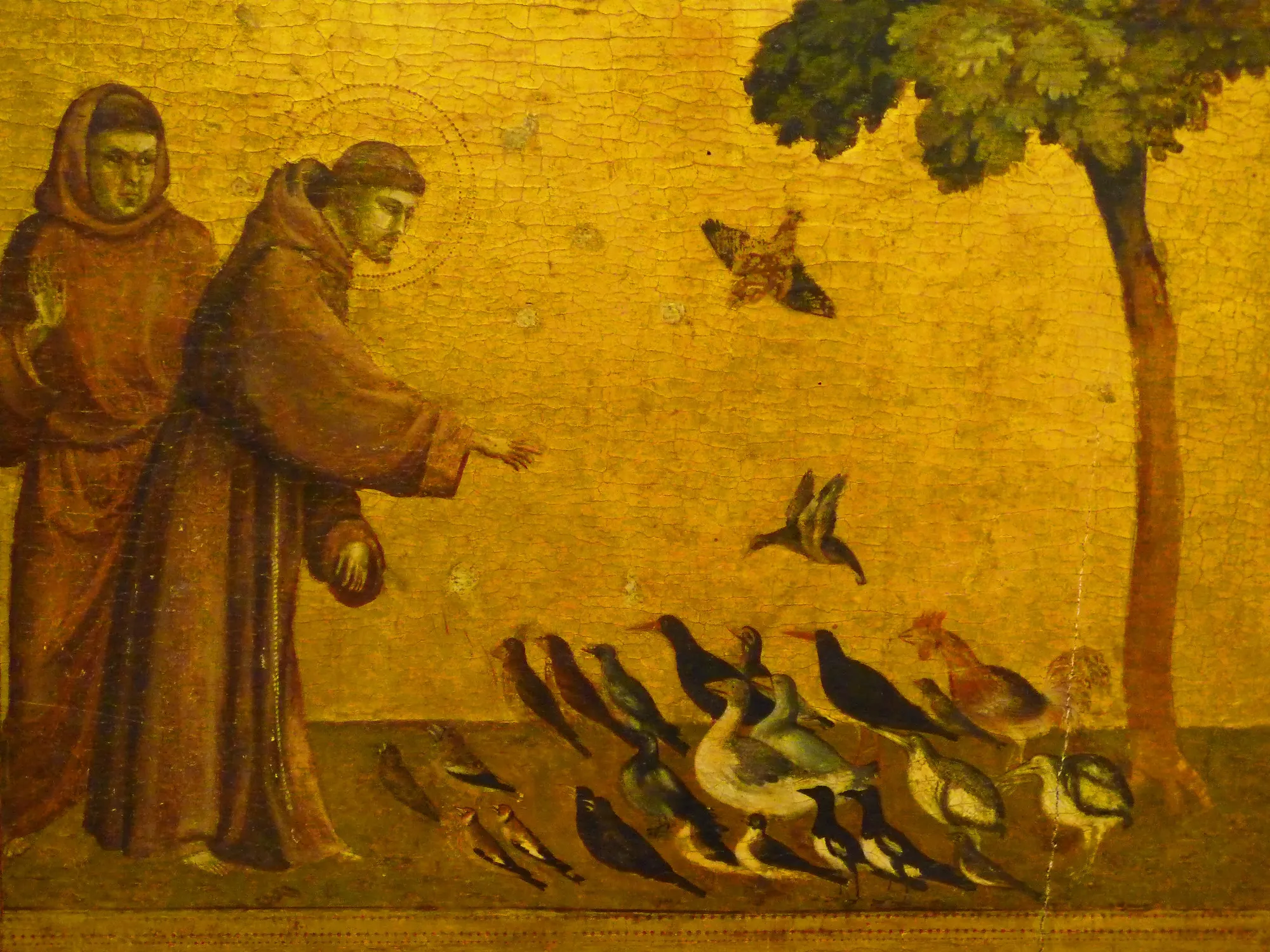The Last Christian

“In the person of Francis the premodern world, so to speak, gathered itself together before coming to an end. For one last time, before the forces of progress thundered off on their triumphant path, one man looked into the motivating thrust behind the whole thing and decisively rejected it: Francis of Assisi, the last Christian.”
So opens Adolf Holl’s unconventional book on Francis, part biography, part historiography, and part critique of modernity. I first read this book in college, and I opened it again last year for a trip to Italy, which included a visit to Assisi. The book’s controversial argument will be evident from the passage above: Francis was the “last Christian” (the German title more precisely implies the “last” or “second Christ”) precisely because he rejected modernity.
This is not hagiography; Holl is thoroughly modern in his approach, even as he seeks to take Francis “on his own terms.” He draws from “unofficial” sources like the Fioretti—the oral tales passed around among the Little Brothers—more than the official narratives published by the like of St. Bonaventure, whom Holl distrusts as a betrayer of the spirit of Francis. Thrown in are hearty doses of existentialism and psychoanalytic theory, which make for an interesting, if also occasionally confounding, read. Despite or because of Holl’s methodology, a truly complex picture of Francis emerges: “An obedient rebel, an earnest clown, an unworldly activist, an ascetical master of the arts of life, a restless wise man, a convivial penitent, a humble authoritarian.”
Holl is most interesting when discussing the socio-economic impact of Francis’s life, and it is here where the real argument about the “last Christian” comes into play. Francis, Holl contends, “was one of us”—the son of a merchant, privileged, a child of the “bourgeois ego,” in other words, a modern. And what is the bourgeois ego? Acquisitiveness, love of money, capital, to be sure, but also the desire for a comfortable life, for security against the anxieties and uncertainties that life will bring.
Francis literally and metaphorically revolted against the bourgeois ego when he disowned his father before the entire town, standing naked before all and exclaiming, “from now on, my only Father is in heaven.” He exchanged this bourgeois life for one of unbounded freedom and joy—the freedom of the itinerant, the troubadour of God (see my note on The Philosophy of Walking below), and the freedom of poverty, of release from the world’s material hold. Francis sought to become the lowest of the low, for the humble will be raised.
We shall look upon Francis as a fool (his own word), as the sort of man who takes the powerful of this world by the arm, as a child might, to tell them the truth—with a force that stuns them to silence.